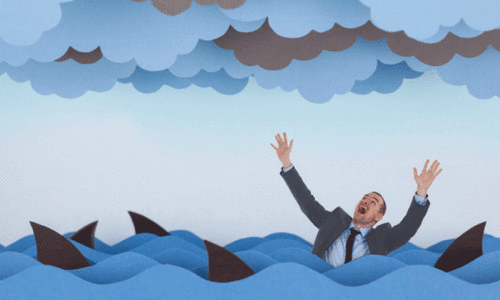The US President-elect Donald Trump is taking an aggressive foreign policy and trading posture. And the approach is beginning to yield results, not only from Rawalpindi but also from its major trading and political allies. The countries are taking the threats seriously and are scurrying to meet the demands of the incoming US administration.
To ‘Make America Great Again,’ the US President-elect is bullying North American Free Trade Agreement members, Canada and Mexico, with the threat of 25 per cent tariffs on all imports from these countries into the US. The president-elect is of the view that fentanyl and illegal immigrants are flowing into the US from the porous borders of Canada and Mexico. The two countries need to stop their flow. Otherwise, he will go ahead with his tariff proposal, Mr Trump insists.
He has also been ‘jokingly’ terming Canada as the 51st state of the United States and Prime Minister Trudeau as the ‘Governor of the great state of Canada’. This has touched raw nerves in Ottawa.
Other nations are also the target of the incoming administration’s aggressive policies. On Dec 20, the US president-elect urged the European Union to either step up US oil and gas imports or face tariffs on the bloc’s exports to the US; the EU already buys the lion’s share of US oil and gas exports. A Reuters report says the US was already exporting at capacity, but Mr Trump has pledged to further grow the country’s oil and gas production — hence the threat.
As Donald Trump’s inauguration nears, countries prepare for potentially tumultuous trade relations amid ‘promised’ US tariffs
The threat to Canada has wider dimensions. Canada and the US are each other’s largest trade partners, with nearly $2.7 billion ($3.6bn in Canadian dollars) worth of goods and services crossing the border each day in 2023. The trade relationship between the two countries is one of the largest bilateral trade partnerships in the world, with annual two-way trade nearing $1 trillion. Canada supplies 34 critical minerals and metals to the US, while Canadian crude oil and electricity account for 60pc and 85pc of US imports, respectively. Furthermore, Canada is the leading supplier of steel, aluminium, and uranium to the US.
Canada is fine-tuning its possible response to the threat. As a last resort, Ottawa is reportedly considering an export tax on high-demand exports such as oil, electricity, uranium, and potash to the United States. The US Department of Defense also has stakes in Canadian critical mineral mines like cobalt and graphite, aiming to reduce reliance on Chinese supply chains. Any retaliatory Canadian tariff will impact that, too.
Ottawa is consulting the premiers of all the provinces of the country to forge a unified Canadian approach to US threats; easier said than done. Technically speaking, all the mineral and fossil resources are owned by the provincial governments. To forge a united front, all the premiers are supposed to be on one page.
The US president-elect is bullying Canada and Mexico with the threat of 25pc tariffs on imports from these countries
Premier Doug Ford of Ontario, Canada’s most populous province, seems ready to suspend electricity exports to American customers if Mr Trump proceeds with tariffs on Canadian goods. Ontario “would turn off the lights to a million-and-a-half Americans,” Mr Ford said — the province exported 13.9m megawatt-hours of electricity to the United States in 2023.
Washington state imported more than 500bn cubic feet of gas from Canada in 2023 before sending some supplies to Oregon. Taking the Canadian fuel away would cause a chain reaction down the coast.
Ontario is also reportedly considering restricting the province’s liquor control board from buying American-made alcohol and exporting critical minerals.
However, the province is also striving to avoid any such clash, realising it would be disastrous for the Canadian economy and, to a lesser degree, for the US economy. Hence, it is spending tens of millions on advertisements south of the border showcasing Canada’s strong ties to the US and the importance of the trading relationship between the two neighbours.
There is strong opposition to the export tax proposal in Canada. “Under no circumstances will Alberta agree to cut off oil and gas exports,” Alberta Premier Danielle Smith emphasised. She strongly underlined that Alberta’s oil and gas exports are a valuable bargaining chip in satisfying US demand for affordable energy. “We don’t support tariffs. I don’t support tariffs on Canadian goods, and I don’t support tariffs on US goods because all it does is make life more expensive for everyday Canadians and everyday Americans,” she said.
Saskatchewan Premier Scott Moe, whose province exports petroleum, uranium, and potash, also objected to such export taxes. “Export taxes on these commodities would be a self-destructive response to US tariffs,” he said.
Quebec Premier François Legault and Newfoundland and Labrador Premier Dr Andrew Furey think stopping energy exports is not on the table.
Reaching a win-win solution to the current imbroglio with the US is a tough call. If it is so for Canada — the closest trading and political ally of the United States — what could be in store for the Pakistani junta is anybody’s guess.
Published in Dawn, The Business and Finance Weekly, January 6th, 2025













































Dear visitor, the comments section is undergoing an overhaul and will return soon.